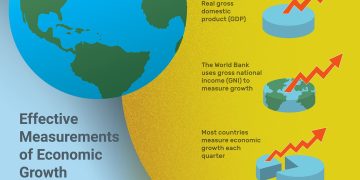Introduction: Setting the Stage for U.S. Leadership on Climate Change
- Overview of Global Climate Change
- The planet’s changing climate is one of the greatest challenges facing humanity, with severe implications for ecosystems, human health, agriculture, and infrastructure.
- Global temperatures have risen due to the increase in greenhouse gas emissions, resulting in melting ice caps, rising sea levels, and more frequent extreme weather events.
- The U.S. and Its Role
- The United States, as one of the world’s largest economies and the second-largest emitter of greenhouse gases (after China), has a pivotal role in addressing climate change.
- The U.S. has a history of both contributing to global emissions and providing leadership in global environmental efforts. The country’s approach to climate policy, technology, and international collaboration will significantly influence the global fight against climate change.
Section 1: The U.S. and Its Historical Role in Climate Change Mitigation
1.1 The U.S. as a Major Contributor to Greenhouse Gas Emissions
- Historical Overview of U.S. Emissions
- From the industrial revolution to the present day, the U.S. has been a major driver of greenhouse gas emissions, primarily due to its reliance on fossil fuels for energy and transportation.
- Carbon dioxide and methane emissions have contributed significantly to the warming of the atmosphere, with the U.S. being a key player in the global emissions landscape.
1.2 U.S. Environmental Policies and Agreements
- Early Environmental Movements
- The rise of environmental awareness in the U.S. in the 1960s and 1970s, including the establishment of the Environmental Protection Agency (EPA) and the passing of major environmental laws.
- The U.S. and International Agreements
- The U.S. has been involved in international efforts like the Kyoto Protocol (2005) and the Paris Agreement (2015). However, the U.S.’s participation has been inconsistent due to changes in leadership and policy priorities.
- Paris Agreement: The U.S. initially joined under President Obama, withdrew under President Trump, and rejoined under President Biden. This illustrates the shifting nature of U.S. commitment to international climate agreements.
Section 2: Current U.S. Policies and Initiatives to Address Climate Change
2.1 U.S. Climate Policies Under President Biden
- The U.S. Rejoining the Paris Agreement
- In 2021, President Biden rejoined the Paris Agreement, signaling a renewed commitment to global climate cooperation and the goal of limiting global warming to 1.5°C above pre-industrial levels.
- The Biden Administration’s Climate Action Plan
- The Biden administration’s ambitious climate agenda includes reducing U.S. greenhouse gas emissions to net-zero by 2050 and achieving a carbon pollution-free power sector by 2035.
- Emphasizing clean energy, electric vehicles (EVs), and green technology, alongside robust carbon pricing strategies and new regulations on emissions from the power and transportation sectors.
- The Inflation Reduction Act (IRA) of 2022
- The IRA is a landmark piece of legislation that allocates billions of dollars toward renewable energy, electric vehicles, energy efficiency, and decarbonization technologies, marking a historic shift in U.S. climate policy.
2.2 U.S. Renewable Energy Transition
- Investments in Clean Energy
- The U.S. has made strides in transitioning from fossil fuels to renewable energy sources such as wind, solar, and geothermal. As of recent years, renewable energy has become a growing portion of the energy mix in the U.S.
- Electric Vehicles and Sustainable Transportation
- With policies to promote the adoption of electric vehicles (EVs), the U.S. aims to reduce carbon emissions from the transportation sector, which is a significant source of emissions.
- Energy Efficiency
- The U.S. is focusing on improving energy efficiency through advancements in technology and infrastructure, which can reduce overall energy consumption and lower emissions.
2.3 Technological Innovation and Research
- U.S. Investment in Green Technologies
- The U.S. has a strong tradition of technological innovation, and this has extended to the development of clean energy technologies, such as energy storage, carbon capture and storage (CCS), hydrogen energy, and advanced nuclear power.
- The Role of Private Sector
- Companies in the U.S. have become key players in driving climate solutions, with many tech giants and clean energy firms taking bold steps toward sustainability.
Section 3: The U.S. Role in Global Climate Leadership
3.1 U.S. as a Global Climate Leader
- Global Influence and Climate Diplomacy
- The U.S., through its leadership in global forums such as the United Nations Framework Convention on Climate Change (UNFCCC) and the G7, has the ability to influence international climate agreements.
- Its involvement in climate diplomacy is critical to galvanizing other nations, particularly emerging economies, to adopt ambitious climate policies.
- The U.S. and Climate Finance
- The U.S. has historically been a key contributor to climate finance, supporting developing countries in their efforts to adapt to and mitigate climate change impacts. U.S. investments in climate change mitigation and adaptation projects in low-income countries can strengthen global climate resilience.
3.2 Transatlantic Cooperation
- U.S. and the European Union
- The U.S. and EU have a long-standing partnership in addressing climate change, especially through efforts to set global emissions standards, establish carbon pricing mechanisms, and encourage investments in renewable energy technologies.
- The U.S. Role in Multilateral Climate Platforms
- The U.S. is crucial in multilateral negotiations and platforms, such as the United Nations Climate Change Conference (COP), where it plays a central role in shaping the global agenda on climate action.
3.3 Climate Change and U.S. Foreign Policy
- U.S. Climate Diplomacy and Trade
- How the U.S. might use climate change as a central part of its foreign policy, engaging with other nations in global supply chains, trade, and technology exchanges to push forward international climate agreements.
- Security Implications of Climate Change
- Climate change is increasingly recognized as a national security threat. The U.S. Department of Defense has identified climate change as a driver of conflict, particularly in vulnerable regions where rising sea levels and extreme weather events may exacerbate instability.

Section 4: Challenges to U.S. Climate Leadership
4.1 Political Divisions and Climate Change Denial
- Climate Change as a Polarizing Issue
- Despite the scientific consensus on climate change, political polarization in the U.S. complicates the adoption of coherent climate policies. Some factions continue to deny or downplay the issue, hindering progress.
- The Role of Congress in Climate Policy
- The challenge of passing comprehensive climate legislation, particularly in a divided Congress. Past attempts, such as the Green New Deal, have faced significant political opposition.
4.2 Economic Considerations and Job Creation
- Transitioning to a Green Economy
- The shift to a green economy is not without challenges, including potential job losses in fossil fuel industries. Ensuring that workers in these sectors are supported through retraining programs is crucial.
- The Impact on U.S. Competitiveness
- How the U.S. balances environmental regulations with economic growth. The concern that stringent climate policies may put U.S. businesses at a disadvantage compared to countries with looser environmental standards.
4.3 Global Competition and Climate Action
- U.S. vs. China: A Geopolitical Rivalry
- The growing rivalry between the U.S. and China in terms of global climate leadership. China, as the world’s largest emitter, has made strides in renewable energy, but the U.S. faces competition in setting global standards.
- The Role of Emerging Economies
- The U.S. faces challenges in encouraging emerging economies to adopt climate policies that align with global targets while supporting their own economic development needs.
Section 5: The Future of U.S. Climate Action
5.1 Accelerating Clean Energy Innovation
- Investing in New Technologies
- The U.S. must continue to lead in the development and commercialization of new clean energy technologies to drive down costs and make renewable energy more accessible to countries around the world.
- The Green Hydrogen Revolution
- Green hydrogen as a potential game-changer for hard-to-decarbonize sectors like heavy industry and long-haul transportation.
5.2 Collaborative Global Solutions
- Strengthening Multilateral Climate Agreements
- The U.S. will play an essential role in strengthening global climate agreements, ensuring that nations commit to ambitious targets and that there is effective implementation and monitoring.
5.3 Climate Adaptation and Resilience
- Building Resilience to Climate Impacts
- The U.S. must also focus on climate adaptation strategies to cope with the impacts of climate change, particularly for vulnerable communities and infrastructure.
5.4 The Role of American Citizens and Local Initiatives
- Grassroots Movements and Local Climate Action
- The importance of citizen activism and local governments in driving change. While national policies are crucial, grassroots movements and local actions are essential in building momentum toward a sustainable future.
Conclusion: The Path Forward for U.S. Leadership in Global Climate Action
- The U.S. Must Lead by Example
- The U.S. has a unique opportunity to lead the world in tackling climate change through ambitious domestic policies, technological innovation, and international cooperation. The nation’s ability to provide climate finance, support the global transition to clean energy, and shape international agreements will be crucial.
- Addressing Internal Challenges
- Overcoming domestic political divisions and economic concerns will be essential for ensuring that the U.S. remains a global climate leader. Broad public support, bipartisan cooperation, and investment in green jobs and technologies are key to the country’s long-term success in addressing climate change.



































